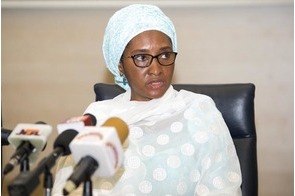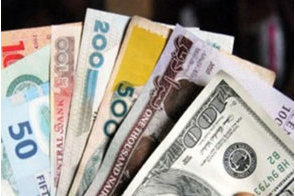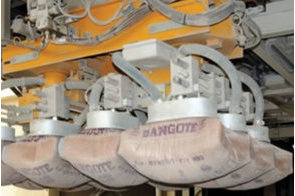Latest News
Guinness Nigeria to increase exports to boost foreign exchange revenue

News Highlight
- Managing Director of Guinness Nigeria Plc said the company will export its flagship Guinness stout and Orijin herbal drink to South Africa.
The Managing Director of Guinness Nigeria Plc, Peter Ndegwa, has said his company plans to export some beer products to South Africa in a bid to boost revenues and generate foreign exchange amidst Nigeria’s deteriorating macroeconomic conditions.
In an interview published by Bloomberg on Wednesday, Ndegwa said the beverage manufacturer will export its flagship Guinness stout and Orijin herbal drink in order to boost FX revenues to pay for much-needed imports.
“With all the challenges we have had with foreign currency availability, we realize that export is a great opportunity to gain foreign exchange and stabilize,” Ndegwa said. “We have heard a lot of inquiries from South Africa. We are currently in the process of seeing how we can export some of those brands to the country.”
Guinness Nigeria is not the only multinational company in Nigeria that has a strategy to increase exports in order to ease FX shortages and boost revenues. Last month, Dharnesh Gordhon, the CEO of Nestle Nigeria, told a business conference in Lagos that his company doubled exports to other African markets in the past 12 months due mainly to the devaluation of the naira, which made exports competitive.
With disposable incomes declining in Nigeria due to slowing economic growth, Ndegwa said customers are switching to cheaper brands. As a result, the Guinness Nigeria boss said his company is expanding awareness and distribution of its range of affordable spirits to give customers more options.
“We are focused on brands that are lower priced, by either improving distribution or improving awareness,” Ndegwa said. “We have spirit brands across all categories but the growth is mid-to-lower end.”
Ndegwa, a Kenyan national, said Guinness Nigeria plans to invest 12 million pounds ($15.9 million) in a plant in Benin, Edo State, in order to boost the amount of goods sourced locally. This will reduce dependence on expensive imports and conserve FX, he said.
“There’s a lot of demand for great brands offered by companies like ours,” Ndegwa said. “We see opportunities for growth, despite the fact that the economy doesn’t look as attractive.”
Related News
Latest Blogs
- African banks can leverage intra-African trade if they fix governance gaps
- EFCC and when law enforcement becomes the terror
- How Tinubu Deviates from IMF/World Bank reform recommendations
- Naira commoditisation as CBN's cashless policy flaw
- Why Nigeria’s national DFIs must be recapitalised
Most Popular News
- Artificial intelligence can help to reduce youth unemployment in Africa – ...
- Nigeria records 3.84 percent GDP growth rate in Q4 2024
- EIB backs Africa Finance Corporation $750m climate infrastructure fund
- Obasanjo, other leaders to launch new debt relief initiative for Africa
- Atihad Airways to announce $1 billion IPO
- Breaking News: Nigerian inflation eases to 24.5 percent after CPI rebasing





_Charging__Power_Grid_-_300x350-202501141447571577.jpg)



